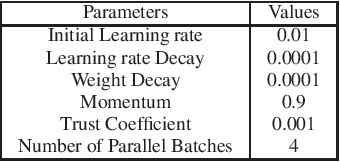Ankita Sharma
Modeling Wise Decision Making: A Z-Number Fuzzy Framework Inspired by Phronesis
Aug 29, 2025Abstract:Background: Wisdom is a superordinate construct that embraces perspective taking, reflectiveness, prosocial orientation, reflective empathetic action, and intellectual humility. Unlike conventional models of reasoning that are rigidly bound by binary thinking, wisdom unfolds in shades of ambiguity, requiring both graded evaluation and self-reflective humility. Current measures depend on self-reports and seldom reflect the humility and uncertainty inherent in wise reasoning. A computational framework that takes into account both multidimensionality and confidence has the potential to improve psychological science and allow humane AI. Method: We present a fuzzy inference system with Z numbers, each of the decisions being expressed in terms of a wisdom score (restriction) and confidence score (certainty). As part of this study, participants (N = 100) were exposed to culturally neutral pictorial moral dilemma tasks to which they generated think-aloud linguistic responses, which were mapped into five theoretically based components of wisdom. The scores of each individual component were combined using a base of 21 rules, with membership functions tuned via Gaussian kernel density estimation. Results: In a proof of concept study, the system produced dual attribute wisdom representations that correlated modestly but significantly with established scales while showing negligible relations with unrelated traits, supporting convergent and divergent validity. Contribution: The contribution is to formalize wisdom as a multidimensional, uncertainty-conscious construct, operationalized in the form of Z-numbers. In addition to progressing measurement in psychology, it calculates how fuzzy Z numbers can provide AI systems with interpretable, confidence-sensitive reasoning that affords a safe, middle ground between rigorous computation and human-like judgment.
Hierarchical corpus encoder: Fusing generative retrieval and dense indices
Feb 26, 2025



Abstract:Generative retrieval employs sequence models for conditional generation of document IDs based on a query (DSI (Tay et al., 2022); NCI (Wang et al., 2022); inter alia). While this has led to improved performance in zero-shot retrieval, it is a challenge to support documents not seen during training. We identify the performance of generative retrieval lies in contrastive training between sibling nodes in a document hierarchy. This motivates our proposal, the hierarchical corpus encoder (HCE), which can be supported by traditional dense encoders. Our experiments show that HCE achieves superior results than generative retrieval models under both unsupervised zero-shot and supervised settings, while also allowing the easy addition and removal of documents to the index.
Zero-Shot Dense Retrieval with Momentum Adversarial Domain Invariant Representations
Oct 14, 2021



Abstract:Dense retrieval (DR) methods conduct text retrieval by first encoding texts in the embedding space and then matching them by nearest neighbor search. This requires strong locality properties from the representation space, i.e, the close allocations of each small group of relevant texts, which are hard to generalize to domains without sufficient training data. In this paper, we aim to improve the generalization ability of DR models from source training domains with rich supervision signals to target domains without any relevant labels, in the zero-shot setting. To achieve that, we propose Momentum adversarial Domain Invariant Representation learning (MoDIR), which introduces a momentum method in the DR training process to train a domain classifier distinguishing source versus target, and then adversarially updates the DR encoder to learn domain invariant representations. Our experiments show that MoDIR robustly outperforms its baselines on 10+ ranking datasets from the BEIR benchmark in the zero-shot setup, with more than 10% relative gains on datasets with enough sensitivity for DR models' evaluation. Source code of this paper will be released.
Evaluating Deep Learning in SystemML using Layer-wise Adaptive Rate Scaling(LARS) Optimizer
Feb 05, 2021



Abstract:Increasing the batch size of a deep learning model is a challenging task. Although it might help in utilizing full available system memory during training phase of a model, it results in significant loss of test accuracy most often. LARS solved this issue by introducing an adaptive learning rate for each layer of a deep learning model. However, there are doubts on how popular distributed machine learning systems such as SystemML or MLlib will perform with this optimizer. In this work, we apply LARS optimizer to a deep learning model implemented using SystemML.We perform experiments with various batch sizes and compare the performance of LARS optimizer with \textit{Stochastic Gradient Descent}. Our experimental results show that LARS optimizer performs significantly better than Stochastic Gradient Descent for large batch sizes even with the distributed machine learning framework, SystemML.
 Add to Chrome
Add to Chrome Add to Firefox
Add to Firefox Add to Edge
Add to Edge